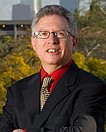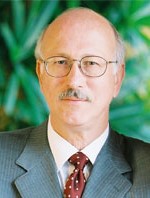Council
Elisabete Martins
Call for papers for RSPP Special Issues

Walled Territories
Walls are identifying marks in space, made by humans; they are expressions of sovereignty, of power and independence. The walls recall us the existence of borders. Borders express the controlling of space. The defence of borders (limit of the territory, of an empire or a State) was quite usually made by walls during the long history of the humanity from the China’s Great Wall or Greek City-States through the Berlin Wall till the today’s constructed walls in Eastern Europe. However, walls exist in different forms, in different places, and in different ages on our Earth.
One can find many theories about the borders in the relevant literature. The common point about the existing conceptions of borders is its functions: separation, connection, filter function. The time of wall constructions is always the sign the strengthening of the separation function; while the demolition of the wall can show the coherence of territories, togetherness of different nations, natural, social, or economic spaces.
Fundamental social, economic and geopolitical transformations have taken place in the past decades on all territorial level. The year of 2015 seems to be crucial from wall constructions process in Europe caused by the migrant crisis, but the vote for Brexit in 2016 also has launched a wall building process in a figurative sense. The list of unsolved questions and walls arise from day to day in many case of the world: Why walls in Mediterranean, Pakistan, Palestine, Korea, US, English Channel exist and how we can manage these urgent issues?
The special issue wishes to work with the elements of this long-run dynamics. We are waiting for all empirical analysis independently of place or time; and theory which can help the understanding of the complex dynamics process around the walls.
The authors are kindly invited to send their full papers till 25th of August 2017 to the editor of the special issue. The authors of selected papers will be asked to submit their work for the regular review process of the journal (Regional Science Policy & Practice - RSPP).
Special Issue Editor: Andrea Székely, Associate Professor (University of Szeged) This email address is being protected from spambots. You need JavaScript enabled to view it. |
|
|
|
|
|
|
|
|
|
|
|
Spatial and Social Justice
The last few decades have seen the world experience a decrease in between-country income inequality accompanied by an increase in within-country income inequality. This is associated with the rapid development of emerging economies. There is also pronounced variation in inequality between regions within countries. High inequality has raised the issue of social justice in many countries.
Theories explaining the increase in income inequality, particularly in emerging countries, can be found in the literature. One of the early theories was Kuznets Hypothesis arguing that there is an inverted U-shaped relationship between economic growth and income inequality. Another area of the literature has focused on social injustice as the cause of income inequality. The central argument proposes that lack of equal access to education, medical service, and energy among others, induces inequality within countries.
This special issue wishes to discuss the elements that explain the increase or decrease in income inequality. We are calling for all empirical analyses, independent of place or time, which can help the understanding of the complex issues of income inequality.
Authors are kindly invited to send their 500-1,000 words abstract by the 15th of June 2017 to the editor of this special issue. It would be appreciated if the authors of selected papers could present their abstracts in the Indonesian Regional Science Association (IRSA) International Institute in Manado, Indonesia, on 17-18 July 2017. There will be up to two special sessions dedicated for this special issue. We expect to receive the full papers by 31st of October 2017. The authors of these selected papers will have to work for the regular review process of the journal (Regional Science Policy & Practice - RSPP).
Coordinator of this Special Issue Editor: Budy P. Resosudarmo (Associate Professor at the Australian National University) This email address is being protected from spambots. You need JavaScript enabled to view it. |
The latest issue of Regional Science Policy & Practice are available! Volume 9, Issue 1, Pages 17 - 59, March 2017
1757-7802/asset/olalertbanner.jpg?v=1&s=3925512d5537d04dc916b33c4702aebc2c966a72) |
|||||||||
|
| The latest issue of Regional Science Policy & Practice is available on Wiley Online Library |
|
ISSUE INFORMATION |
||||||
| Issue information (pages 1–2) Version of Record online: 15 MAY 2017 | DOI: 10.1111/rsp3.12079 |
||||||
|
EDITORIAL |
||||||
|
||||||
|
ARTICLES |
||||||
|
RSAI Newsletter May 2017 is now online!
Dear all,
The new RSAI Newsletter May 2017 can now be found under
http://regionalscience.org/images/PDF/Newsletter%202017%20May.pdf
2017 elected RSAI Fellows
RSAI is pleased to announce the election of the following Fellows in 2017:
|
University of Southern California, USA |
Roberto Camagni |
University of Southern California, USA |
REGIONAL RESEARCH INSTITUTE SUMMER COURSES IN SPATIAL ECONOMETRICS
REGIONAL RESEARCH INSTITUTE
SUMMER COURSES IN SPATIAL ECONOMETRICS
July 31- August 3, 2017
Description:
The objective of the course is to provide a (not so short) introduction to spatial econometrics. Students will learn how to model and incorporate spatial dependencies into their empirical analyses. The course will cover basic as well as more advanced concepts ranging from the different typologies of spatial data, through the definition of connectivity in space (spatial weights matrices), to a comprehensive treatment of various spatial econometric models both crosssectional as well as panel. Estimation methods presented will include MLE (maximum likelihood), GMM (generalized method of moments), GLS (generalized least squares), and GS2SLS (generalized spatial two stage least squares). The latter part of the course will deal with special topics such as panel data models, and various testing procedure.
Instructor:
Gianfranco Piras
Organization:
The course is organized into a format that includes morning (theoretical) lectures and afternoon computing lab and applications sessions. A reading list will be provided for each of the topics covered. Additional course materials will be provided.
Applications:
Applicants should submit a curriculum vitae and a brief statement of interest to This email address is being protected from spambots. You need JavaScript enabled to view it.. Applicants will be screened for suitable levels of preparation and background, and placed into the course on a first come, first served basis.
Important Dates:
Applications period opens: March 13, 2017
Extended Application Deadline: July 1, 2017
Acceptance Notification: Two days after application is received.
Confirm Participation by July 8, 2017
We will be able to admit a limited number of participants based on applications received by the deadline. Participation must be confirmed through the payment of course fees on or before July 8, 2017.
Fees:
The course fees are $3,000. Fees cover course tuition, lunches and course materials. Submitted fees will be nonrefundable. Accommodation and other living expenses are not included. A block of rooms will be reserved at nearby hotels at a discounted rate.
Additional information and a link for registration will be available soon on the RRI website at: http://rri.wvu.edu/.
West Virginia University is an Equal Opportunity/Affirmative Action Institution.
West Virginia University is governed by the West Virginia University Board of Governors and the West Virginia Higher Education Policy
Commission. E. Gordon Gee is the 24th president of West Virginia University
Call for Papers | Special session(s) on Climate Change | North American Meetings of RSAI, Vancouver, November 8-11, 2017
Growing concerns about climate change and the frequency/intensity of its associated extreme events have led to a burgeoning literature on the measurement of their economic impacts. Yet, the large majority of such studies ignores or treats poorly the presence of interregional dependence, intersectoral linkages and spatial heterogeneity Regional Scientists are used to deal with.
As such, the Climate Change Impact sessions aim at bringing together NARSC participants interested in measurements of the economic impact of climate change from a Regional Science perspective. Both theoretical and applied papers will be presented in these special sessions.
Examples of topics of interest include:
- Regional mitigation and/or adaptation
- Climate change impacts on crop yields or farmland values
- Climate change impacts on agricultural trade
- Food-water nexus at the regional level
- Regional actions in the absence of federal government intervention
- The environment as a location factor
- Climate change and regional cooperation
If you are interested to contribute with a presentation, please follow the usual abstract submission procedure at http://www.narsc.org/newsite/conference/online-abstractsession-submission/ and then send the ID of the submitted paper to: This email address is being protected from spambots. You need JavaScript enabled to view it.
Organizers:
- John Carruthers (Sustainable Urban Planning Program, The George Washington University) - This email address is being protected from spambots. You need JavaScript enabled to view it.
- Sandy Dall’erba (Dept. of Agricultural and Consumer Economics, University of Illinois at Urbana-Champaign) - This email address is being protected from spambots. You need JavaScript enabled to view it.
- Henk Folmer (Dept. of Economic Geography, University of Groningen) - This email address is being protected from spambots. You need JavaScript enabled to view it.
2017 AESOP PRIZE FOR EXCELLENCE IN TEACHING - Applications open
|
4th Geography of Innovation Conference, Jan. 31-Feb. 2, 2018
|
||
|
XLIII Reunión de Estudios Regionales - 15 al 17 de noviembre de 2017 - Sevilla
Apreciado colega, querido amigo,
Está abierto el plazo para el envío de abstracts para la XLIII edición de la Reunión de Estudios Regionales y el XIII Congreso de Ciencia Regional de Andalucía organizado por las Asociaciones Española y Andaluza de Ciencia Regional y que se celebrará en el Campus de la Universidad Pablo de Olavide (Sevilla) los días 15, 16 y 17 de noviembre de 2017.
En esta edición, el lema es "Comercio internacional y empleo: Una perspectiva regional". Las sesiones del Congreso tratarán además un conjunto amplio de temas agrupado en 16 áreas temáticas y sesiones especiales. Además, en esta edición contaremos con la presencia como conferenciantes del Prof. Ferran Sancho (Universidad Autónoma de Barcelona) y el Prof. Michael Lahr (Rutgers Economic Advisory).
El envío de resúmenes para el Congreso, con una extensión de no más de 300 palabras, estará abierto hasta el próximo día 13 de mayo de 2017, y se enviará a la Secretaria de la AECR (Conxita Rodriguez i Izquierdo) a la siguiente dirección de correo electrónico (This email address is being protected from spambots. You need JavaScript enabled to view it.) con el modelo que os adjuntamos. En la línea del pasado congreso, se aceptará la presentación de resultados de trabajos de investigación en curso para los que no exista aún un artículo completo. Para que el Comité Científico pueda considerar la aceptación de dichos trabajos se requerirá el envío de un abstract ampliado, con una extensión mínima de 1.500 palabras. Os adjuntamos los dos tipos de abstracts para que los tengáis a mano y más información sobre el Congreso.
Las comunicaciones que sean inéditas, hayan sido realizadas por investigadores de edad no superior a 33 años y se presenten dentro del marco de las sesiones paralelas, pueden optar al Premio de jóvenes investigadores Juan Ramón Cuadrado. El jurado encargado de otorgar el premio es el Comité Científico de la XLIII Reunión de Estudios Regionales. Los autores firmantes de la comunicación premiada recibirán un documento acreditativo del premio y un obsequio.
Los doctorandos que se encuentren en las primeras etapas de sus tesis doctorales y los estudiantes de máster orientados hacia la investigación disfrutarán de una cuota de inscripción reducida para poder acceder a las sesiones paralelas del Congreso y participar en las sesiones especiales para jóvenes investigadores. En estas sesiones podrán realizar una breve presentación de sus ideas de investigación, preferiblemente en forma de póster.
Esperamos vuestra participación y veros pronto en Sevilla.
Un cordial saludo,
El Comité Organizador
Valued colleague, dear friend,
Abstract submission for the XLIII Reunión de Estudios Regionales and the XIII Conference on Regional Science of Andalusia, organized by the Spanish and Andalusian Regional Science Associations (AECR- AACR), is open. The Conference will take place at the Campus of the University Pablo de Olavide (Seville), from the 15th to the 17th of November, 2017.
The motto for the Conference is "International trade and employment: a regional perspective". Conference sessions will include also a wide range of topics, grouped in 16 subject areas and special sessions. We are pleased to announce that Prof. Ferran Sancho (Universidad Autónoma de Barcelona) and Prof. Michael Lahr (Rutgers Economic Advisory Service) will join the Conference as Keynote Speakers.
Abstracts, with an extension of no more than 300 words, should be sent before May 13th, 2017, to the AECR Secretary (Conxita Rodriguez i Izquierdo) to the email address This email address is being protected from spambots. You need JavaScript enabled to view it., with the attached template. This year you can submit the results from ongoing research even if there is not a complete paper available yet. The Scientific Committee will consider for acceptance the submission of long abstracts, with a minimum extension of 1,500 words. Templates for both types of abstracts, as well as further information for the Conference, are attached for your convenience.
Unpublished papers written by researchers of age not higher than 33 years and presented at the parallel sessions are eligible for the Juan Ramón Cuadrado Young Researchers' Prize. The jury that will grant the Prize is the Scientific Committee of the XLIII Reunión de Estudios Regionales. The authors of the paper awarded with the Prize will receive an accreditation for the award and a gift.
PhD students in the first stages of their dissertations and Master students with a research orientation will enjoy reduced registration fees that will allow them access to the parallel sessions at the Conference, and also to participate in the Young Researcher Sessions. There, they will present briefly their research ideas, preferably through posters.
We are looking forward to your participation and we hope we will have the opportunity to welcome you at Seville.
Greetings,
The Local Organizing Committee
http://www.reunionesdeestudiosregionales.org/en/xliii-reunion-de-estudios-regionales/
UTS Chancellor’s Postdoctoral Research Fellowships - Urban and Regional Development
UTS Chancellor’s Postdoctoral Research Fellowships (CPDRF) are awarded to outstanding early career researchers who wish to develop their research, teaching and learning, management and communication skills to become the next generation of leading academics at UTS.
The Institute for Public Policy and Governance (IPPG) is seeking expressions of interest from suitable candidates in the fields of urban and regional development.
The CPDRF scheme offers:
• a four-year combination research and teaching appointment
• Academic Salary Level B, Step 2 ($99,924 base salary as of 1 May 2017) plus 17 per cent employer-provided superannuation contribution
• research project funding of up to A$50,000
As well as further opportunities to:
• access international researcher development funds, and
• convert to a continuing academic position following the fellowship period
• Postdoctoral fellows will be expected to engage in high quality research projects, produce high quality outputs, and contribute to existing and emerging teaching and learning areas relevant to UTS.
Expressions of Interest close at 12 noon AEST Friday 26 May 2017. The three-stage application process involves expression of interest (EOI), invited full application and interview.
Further information is available at: https://www.uts.edu.au/research-and-teaching/future-researchers/future-research-staff/chancellors-postdoctoral-research-0-2
In the first instance, please contact Lee Pugalis (This email address is being protected from spambots. You need JavaScript enabled to view it.).
Best regards
Lee Pugalis
Professor of Urban Studies
Institute for Public Policy and Governance (IPPG)
University of Technology Sydney
About Us
The Regional Science Association International (RSAI), founded in 1954, is an international community of scholars interested in the regional impacts of national or global processes of economic and social change.






